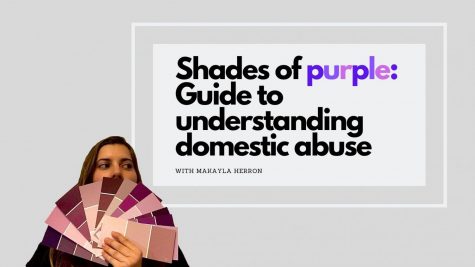Juliette’s Declassified School Survival Guide: September
Myth-busting mental health days
A few weeks ago, I woke up at 7 a.m. one rainy Thursday morning with only four hours of sleep and thought to myself, “Nope, I just can’t do this today.” Somebody could have bribed me with a dozen donuts to come to class that morning and I still would have refused to pull myself out of bed. The night before had been tear-your-hair-out stressful, and with so little rest, I decided to give myself a break and take a mental health day.
I know I’m not alone in this experience. There’s a difference between being tired in the morning and being unable to function, but the line between them is blurry, making it hard for students to decide what exactly warrants a mental health day, or if they exist at all. Mental health days are entrenched in stigma that persuades students into ignoring their well-being for the sake of perfect attendance.
Some of this stigma comes from the worry that taking a day off will not help at all. It seems counter-productive to miss assignments, tests, quizzes or after-school activities in order to relieve stress. However, while this may make life harder for the first few days after you return, you’ll be in a much better state of mind to bear these new challenges than you were to take on a normal workload without the day of rest. Burnout is real and treating burnout with more work is the real counter-productive solution.
There are no shortage of studies that warn parents of the rising depression and anxiety rates in today’s teens. In a study by Blue Cross Blue Shield Association in 2018, diagnosis of major depression rose by 47% for boys and 65% for girls since 2013. The general consensus by professionals is that mental illness is on the rise, especially in students. While this means that those who are diagnosed with depression, anxiety or any like disorder have access to more resources like hotlines and therapeutic communities, others may feel like they need a diagnosis to justify seeking help. In other cases, students without depression or anxiety may feel like their stress is not real and push it aside.
The truth is, you don’t need a doctor’s diagnosis to practice self-care and you don’t need a disorder to be unhealthy. Taking a mental health day doesn’t necessarily mean you have an anxiety disorder; everybody is susceptible to the pressures of life and everybody has a responsibility to take care of themselves. On the other hand, if every other day turns into a mental health day, it’s time to rethink whether or not you’re judging your capacity correctly, and if you are, then seeking external help from a school counselor or therapist is the best option.
Another fear that might arise when debating whether or not to take a day off or just suck it up for eight more hours is that “I’m taking a mental health day” will translate to others as “I’m skipping.” Because the criteria for taking a mental health day is up to the individual, some students believe it to be a flimsy excuse for skipping school to catch up on homework, cop an extra study day, or just take a nap. It’s true that some people will use these excuses, but that shouldn’t deter anyone else from taking one when it’s truly needed.
When I was lying swaddled in my blankets that rainy Thursday morning, I worried if perhaps I was just being oversensitive. This is evident of another myth making students think twice about whether or not to choose their well-being over a number in a gradebook: that doing so makes them weak. But there’s nothing weak about taking care of yourself, and in fact, it takes a great amount of strength and resilience to choose your needs over peer pressure.
There is no strict criteria for when or if you should take a mental health day like there would be if you were running a fever or throwing up, but that doesn’t mean your mental well-being is any less real than your physical well-being. A mental health day, when absolutely necessary, will boost your mood in spades and contribute to better grades in the future.











